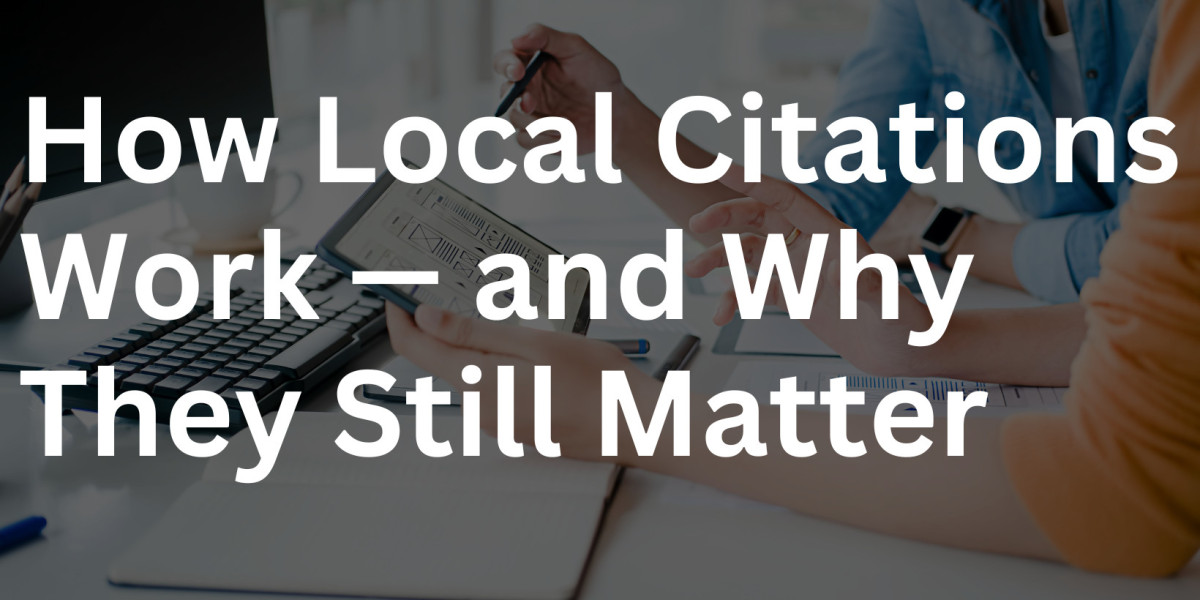Think of a local citation as your business's ID badge on the internet. A local citation is any online mention of your business's name, address, and phone number (NAP). These mentions often appear in business directories, websites, apps, and social media platforms. Common examples? Google Business Profile (formerly Google My Business), Yelp, Apple Maps, and even niche-specific directories like TripAdvisor or Healthgrades.
These snippets of business information help users discover local services and products. But more importantly, they help search engines trust that your business is legitimate, established, and — wait for it — locally relevant.
The Truth Behind Citations and SEO Rankings
Here comes the part Google doesn’t shout about: citations matter because they reinforce the consistency and authenticity of your business online. When your NAP is identical across hundreds of platforms, search engines take it as a green light. They understand, "Yes, this business exists at this location, under this name, and this number."
Consistency builds trust, and trust builds rankings. On the flip side, if your business is listed as "Maggie's Florals" in one place and "Maggie's Flower Shop" in another — with mismatched phone numbers or outdated addresses — search engines get skeptical. Confusion = lower rankings.
But it’s not just about being correct — it’s about being everywhere and identical.
Structured vs. Unstructured Citations — Yes, There’s a Difference
This isn’t just geek-speak. Structured citations are those listings you find in directories. They follow a consistent format: business name, address, phone number, sometimes with a website URL and business category. Yelp, Bing Places, and Yellow Pages are classic examples.
Unstructured citations, however, are more informal. They can appear in blog posts, news articles, press releases, or online reviews — any mention of your business that includes some or all of your NAP information. Imagine a food blogger praising your bistro and mentioning your location — that counts.
Why should you care? Because both types signal legitimacy. Structured citations offer uniformity. Unstructured citations show people are talking about you. Together, they power your local presence.
The Authority Factor: Not All Citations Are Created Equal
Here’s the kicker — just like backlinks, some citations are worth more than others. Being listed on Google Business Profile or Apple Maps? That’s a high-authority citation. A listing on an obscure, outdated local directory with zero traffic? Not so much.
Google, Bing, and other search engines weigh citations based on the credibility of the source. So, focus on reputable directories that align with your niche or industry. If you're a lawyer, get listed on Avvo. If you're a restaurant, OpenTable might help. It’s not about quantity; it’s about strategic visibility.
The Local Pack Isn’t Magic — It’s Citation Math
Ah, the famed Google Local Pack — those top three local listings that appear above the organic results. Everyone wants a spot. Citations play a pivotal role in who gets in. It’s part of Google’s algorithm cocktail: citations, reviews, proximity, relevancy, and website authority.
The more consistent and authoritative your citations are, the better chance you have to show up there. Even more so if your competitors are lagging behind in citation hygiene. And let’s be clear: Google doesn’t rely solely on its own business listing platform. It scans dozens of sources to verify your legitimacy.
Cleaning Up the Mess: Citation Audits and NAP Consistency
If your business has been around for a while, chances are your citations are scattered — and possibly outdated. Changed your address? Updated your phone number? Then it’s time for a citation audit.
Citation audits involve tracking down every instance of your business listing and making sure it aligns. Tools like Moz Local, BrightLocal, or Whitespark can help automate the process. But don’t rely solely on tools. Manual checks and edits can make a huge difference, especially on high-traffic platforms.
NAP consistency isn’t a one-and-done game. You have to monitor it regularly. A small error, like an old street name or an incorrect suite number, can gradually corrode your credibility in Google's eyes.
Citation Building Strategies That Actually Work
Now to the good part — how do you build citations the right way?
Start with the big guns: Google, Bing, Apple Maps, Facebook, Yelp, and LinkedIn.
Find industry-specific directories: These not only enhance your niche relevance but also attract the right traffic.
Look local: City business indexes, Chamber of Commerce websites, and local blogs can offer rich citation opportunities.
Get featured: Reach out to bloggers, journalists, or local influencers who might mention your business naturally.
Avoid shortcuts. Don’t fall for spammy services promising hundreds of citations in minutes. Those often lead to low-quality directories that could do more harm than good.
Are Citations Still Relevant in 2025?
You might be wondering — do citations still move the SEO needle in 2025? The short answer: yes. But not in isolation.
Think of citations as one slice of the local SEO pie. Reviews, backlinks, mobile optimization, on-page SEO — they all work in harmony. However, citations lay the foundational trust layer. Without them, your other efforts can look shaky.
What has changed is the emphasis on quality over quantity. Search engines are smarter. They're no longer fooled by 300 weak citations. Ten strong, accurate, and strategic citations? That gets noticed.
Common Citation Pitfalls You Didn’t Know You Were Making
Duplicate listings: Confuse users and search engines. Always suppress or merge duplicates.
Inconsistent NAP: Even small inconsistencies like "St." vs. "Street" can cause confusion.
Wrong categories: Mislabeling your business can get you lost in irrelevant search results.
Dead links: Make sure your website URLs in citations are updated and working.
Ignoring niche directories: You're missing targeted traffic and relevance signals.
Avoiding these mistakes isn’t rocket science, but it requires a bit of diligence — and a keen eye for digital housekeeping.
The Competitive Advantage Nobody Talks About
Let’s break this down: most businesses still don’t manage their citations well. That’s your window. While others scramble to post on social media or chase paid ads, you can quietly dominate local search through clean, authoritative, and expansive citations.
It’s not flashy, but it’s foundational.
Moreover, if you're in a competitive niche — say, real estate, legal, or home services — citations can be the deciding factor between you and the next guy in the Local Pack.
Conclusion: Citations Are Quiet but Mighty SEO Tools
They won’t make headlines like TikTok hacks or AI chatbots. But local citations are one of the most underutilized SEO tactics out there. They help you rank, build trust, and create a cohesive brand footprint across the digital map.
And if you don’t have the time (or the patience) to clean up your digital mess and build citations the right way, you don’t have to do it alone. Partnering with an affordable local SEO company can make all the difference — because in the end, visibility isn’t just about being seen. It’s about being trusted.
In a world where search engines judge you before customers do, citations aren’t optional. They’re essential. Treat them that way.



